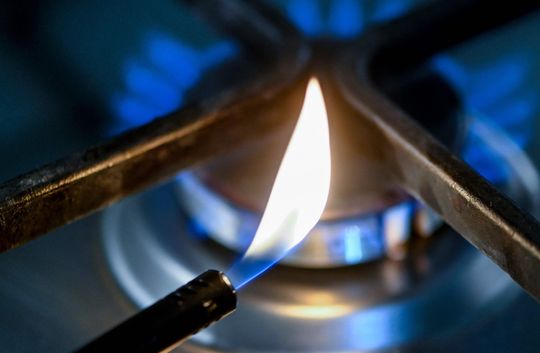Natural-gas futures on Thursday posted a gain for the holiday-shortened week, their fifth weekly climb in a row, with prices for the fuel settling at their highest in close to 14 years.
The front-month May contract for natural gas NGK22, +4.63% settled at $7.30 per million British thermal units on Thursday, up 30 cents, or 4.3% for the session. Prices for the week posted a gain of more than 16%, according to Dow Jones Market Data.
Most financial markets will be closed on Good Friday, including energy trading on the New York Mercantile Exchange.
Thursday’s settlement was the highest for a front-month contract since October 2008, and the five-week climb was the longest such stretch of gains since October 2021.
The catalyst behind this week’s rally in natural gas has been a “late season blast of cold weather making its way across the country,” boosting demand for heating in many parts of the nation, said Tyler Richey, co-editor at Sevens Report Research. He also said a pipeline outage in Alabama took some natural-gas supply offline for an “indefinite amount of time,” contributing to the price climb.
Even so, the reason behind the rise in natural-gas prices to the highest levels since 2008 goes beyond current weather conditions and forecasts, Richey told MarketWatch. “This has been the result of an “increasingly bullish fundamental backdrop as inventories are now sitting 23.9% lower than the same period last year, and 17.8% lower than the five-year average.”
The Energy Information Administration on Thursday reported that working natural gas in U.S. storage rose 15 billion cubic feet for the week ended April 8. That increase was bigger than the average rise of 10 billion cubic feet expected by analysts polled by S&P Global Commodity Insights, but less than the five-year average supply climb of 33 billion.
At 1.397 trillion cubic feet, supplies are 439 billion less than a year ago and 303 billion below the five-year average, according to the EIA.
That “paired with strong demand so far in the spring ‘shoulder season’, when supply is supposed to build substantially before summer demand picks up, has bolstered prices as supply is expected to remain well below average for the foreseeable future,” Richey said.
Geopolitical unrest in eastern Europe is also keeping a bid under the market as Russian energy exports could come to a halt at any time, he said.
The New York Times reported Thursday that European Union officials were drafting a ban on oil imports from Russia. The EU has issued various sanctions on Russia, but has been reluctant to ban Russian oil given that some of its members are highly dependent on those imports.
“Due to tragically high electricity prices in Europe, all interchangeable energy sources — coal, natural gas and oil CL.1, +2.20% BRN00, -0.04% — have become intertwined such that [the] price of one influences the price of the others,” said Velandera’s Raj. Coal prices have rallied in recent weeks, and coal competes with natural gas as an energy source.
Even so, Richey said natural-gas prices may have become overbought in the near term.
“A pullback on any bearish news should not come as a surprise,” he said. “In such an event, we should look for initial support near $6.33 and more formidable support down near $5.50.”
A drop to either of those targets would likely present a “buying opportunity based on both the bullish fundamental backdrop and increasingly positive technical trends of late” in natural gas, said Richey.

